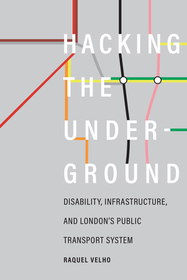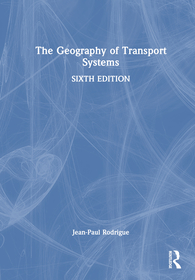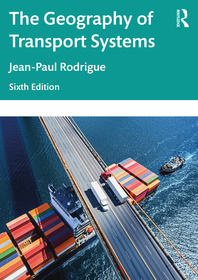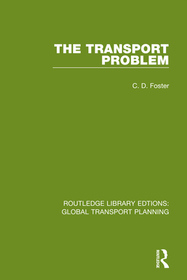
Hacking the Underground
Disability, Infrastructure, and London's Public Transport System
Series: Feminist TechnosciencesFeminist TechnosciencesFeminist TechnosciencesFeminist TechnosciencesFeminist TechnosciencesHacking the Underground;
- Publisher's listprice GBP 22.99
-
10 983 Ft (10 460 Ft + 5% VAT)
The price is estimated because at the time of ordering we do not know what conversion rates will apply to HUF / product currency when the book arrives. In case HUF is weaker, the price increases slightly, in case HUF is stronger, the price goes lower slightly.
- Discount 20% (cc. 2 197 Ft off)
- Discounted price 8 786 Ft (8 368 Ft + 5% VAT)
Subcribe now and take benefit of a favourable price.
Subscribe
10 983 Ft

Availability
printed on demand
Why don't you give exact delivery time?
Delivery time is estimated on our previous experiences. We give estimations only, because we order from outside Hungary, and the delivery time mainly depends on how quickly the publisher supplies the book. Faster or slower deliveries both happen, but we do our best to supply as quickly as possible.
Product details:
- Publisher University of Washington Press
- Date of Publication 21 November 2023
- ISBN 9780295751948
- Binding Paperback
- No. of pages202 pages
- Size 229x152 mm
- Weight 295 g
- Language English
- Illustrations 2 b&w illus. 514
Categories
Long description:
"
Reveals how knowledge from the margins shapes infrastructures
""Minding the gap"" while using a wheelchair on the London Underground goes beyond a sharp eye and careful foot placement to avoid a fall: it can entail carrying and deploying a portable ramp to embark and disembark or carefully mapping out a custom route ahead of time. The extensive infrastructure of London's public transportation system requires constant improvisation from users who move through the system differently than nondisabled people do. Centering the voices of disabled passengers, Hacking the Underground highlights how marginalized groups subvert and ultimately transform infrastructures, actively shaping them.
Raquel Velho draws on emancipatory action research in London, capturing the hegemonic character of infrastructures without losing the experiences and actions of marginalized users. Proposing a crip feminist and profoundly relational approach to infrastructure, Velho illustrates how the built environment holds the potential for both inclusionary and exclusionary world-building.








